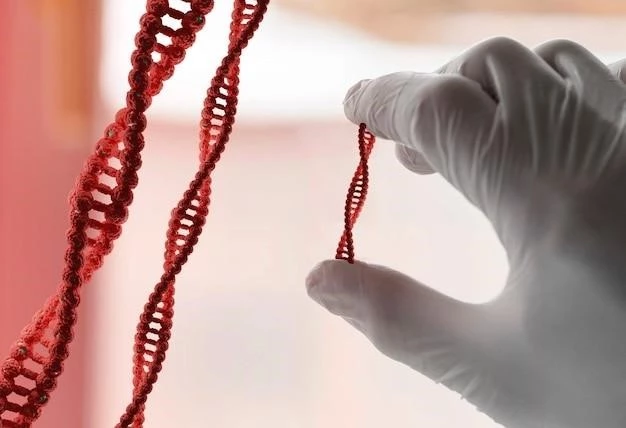Overview of Chromosome 9 Tetrasomy 9p Disorder
Understanding the complexities of Tetrasomy 9p is crucial in navigating its symptoms, causes, diagnostic methods, treatments, prognosis, support services, and current research․
Description⁚
Chromosome 9 Tetrasomy 9p, a rare genetic condition, involves the presence of an extra copy of the short arm of chromosome 9․ This overabundance of genetic material can lead to a variety of developmental delays, intellectual disabilities, and physical abnormalities․ Individuals with Tetrasomy 9p may exhibit a range of symptoms affecting different parts of the body, requiring comprehensive medical evaluation and support․
Symptoms and Clinical Manifestations of Tetrasomy 9p
Recognizing the array of symptoms associated with Tetrasomy 9p is crucial for accurate diagnosis and comprehensive care planning․
Common Symptoms⁚
Common symptoms of Tetrasomy 9p may include developmental delays, intellectual disabilities, poor muscle tone, distinctive facial features, heart defects, growth delays, and neurological issues․ Early identification and tailored interventions can significantly improve the quality of life for individuals with Tetrasomy 9p․
Genetic Causes and Inheritance Patterns of Chromosome 9 Tetrasomy 9p
Understanding the genetic basis and inheritance patterns of Tetrasomy 9p is crucial for comprehensive management and family planning․
Genetic Basis⁚
Tetrasomy 9p arises from the presence of an extra copy of the short arm of chromosome 9․ This genetic anomaly can result from various mechanisms, including de novo mutations or familial translocations․ Consultation with a genetic counselor is essential for understanding the specific genetic underpinnings and recurrence risk․

Diagnostic Methods for Identifying Tetrasomy 9p
Accurate diagnosis of Tetrasomy 9p typically involves genetic testing, imaging studies, and clinical evaluations․ Early detection is key for prompt intervention․
Testing Procedures⁚
Diagnostic testing for Tetrasomy 9p may include chromosomal microarray analysis, fluorescent in situ hybridization (FISH), karyotype analysis, and physical examinations․ These tests help in confirming the presence of the extra genetic material on chromosome 9 and guide healthcare professionals in developing appropriate management plans․
Treatment Approaches for Chromosome 9 Tetrasomy 9p
Individualized treatment plans may include early intervention services, physical therapy, speech therapy, educational support, and regular monitoring to address developmental delays and optimize quality of life․
Therapeutic Strategies⁚
Therapeutic strategies for individuals with Tetrasomy 9p may involve a multidisciplinary approach including occupational therapy, behavioral interventions, medical management of associated conditions, and ongoing support from healthcare professionals, educators, and social workers․ Early and consistent intervention can help individuals reach their full potential and improve their overall well-being․
Prognosis and Long-Term Outlook for Individuals with Tetrasomy 9p
Understanding the prognosis and long-term outcomes of Tetrasomy 9p can help guide care decisions and support planning for the future․
Prognostic Factors⁚
Prognosis for individuals with Tetrasomy 9p can vary based on the severity of symptoms٫ presence of associated health issues٫ early interventions٫ and access to supportive care․ Regular medical follow-ups and coordinated care can positively impact the long-term outlook․
Support Services and Resources for Patients with Tetrasomy 9p
Accessible support services and resources play a vital role in enhancing the care and quality of life for individuals with Tetrasomy 9p and their families․
Available Support⁚
Support for Tetrasomy 9p includes genetic counseling, early intervention programs, specialized therapies, educational support, parent/caregiver resources, advocacy groups, and online communities․ These resources can provide invaluable assistance, guidance, and a sense of community for individuals and families affected by Tetrasomy 9p․
Current Research and Future Directions in Managing Chromosome 9 Tetrasomy 9p
Stay informed on the latest studies and advancements to access potential new treatments and improved management options for Tetrasomy 9p․
Research Updates⁚
Ongoing research on Tetrasomy 9p focuses on understanding its underlying mechanisms, exploring targeted therapies, improving diagnostic techniques, and enhancing support services․ Keeping up with these developments can contribute to advancing care and outcomes for individuals with Tetrasomy 9p․
